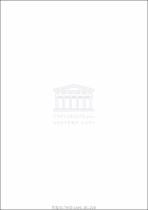The raison d'etre of the Muslim mission primary school in Cape Town and environs from 1860 to 1980 with special reference to the role of Dr A. Abdurahman in the modernisation of Islam-oriented schools
Abstract
This d~ssertation concerns the modernisation of Islam-oriented schooling in Cape Town and environs whereby Muslim Mission Primary
Schools emerge as a socio-cultural compromise between community needs and State school provision policy. It proceeds from the recognition of the cultural diversity that has since the pioneering days characterised the social order of the Mother City. Two religious and cultural traditions have coexisted here in a superordinate and subordinate relationship; one developed a school system for domestication and cultural assimilation, and the other a covert instructional programme for an"alternative religious system and behaviour code. The thrust of the argument is that the Islamic community, developed on the periphery of society that excluded non-Christians, were in the main concerned with cultural transmission, first in the homes of Free Blacks during the Dutch regime, and later in the mosques that arose when religious freedom was obtained. Traditional schools for Islamic culture transmission were conducted by imams and tended to attract in large numbers the children of slaves and other non-white children causing concern among evangelists In 1863, a political understanding between the governments of Britain and Turkey resulted in Abu Bakr Effendi being assigned by the Sultan to conduct a school in Cape Town to effect some uniformity of Islamic instruction. A latent consequence of this Turkish funded school was the production of the first Afrikaans textbook on Islam, a step in the modernisation of cultural transmission. After Effendi's demise the school was discontinued. State education policy ensured that non-white children generally were educated only at State-funded Christian Mission schools. Most Muslim children received only Islamic instruction at the various madressahs (traditional schools) as a result. An increasingly rigid segregation of public schools oriented towards reproducing the superordinate-subordinate culture relationship resulted in a widening gap of literacy which was increasingly
important for the economic and political dispensation. Concerned Muslims organised themselves to address the educational deficiency.
The South African Moslem Association urged mOre educational opportunity but floundered before accomplishing anything noteworthy.
Their importance lay in their making the Muslims more aware of the need to have a secular education in a changing social order. It was self-evident that education had to be seen in the political context: the weaker community was most likely to suffer the greatest lack of schools.
Dr A. Abdurahman, foremost political figure of the first forty years of this century, took the first steps in establishing State-aided primary schools for Muslim children. Whatever success he had in this regard was entirely due to his personali ty and political acumen. In contrast to Abdurahman was the philanthropic effort of Hajee Sullaiman Shah Mohamed to build a school with an Islamic ethos. Why he failed is considered against the social historical background of the Cape Muslims and the communities' manifest needs. Politically, Abdurahman was in a better position and better equipped to address the problem. He served as manager of three Muslim primary schools, the development of which form a substantial part of this study. Abdurahman could harness the creative energies and resources of immigrant and indigenous Muslims in creating these schools. But the Cape Malay Association, disenchanted with Abdurahman's perceived partisanship, politically sought to advance Malay communal interests in the political patronage of the Afrikaner political faction in power. In terms of schooling policy they were to be disillusioned.

